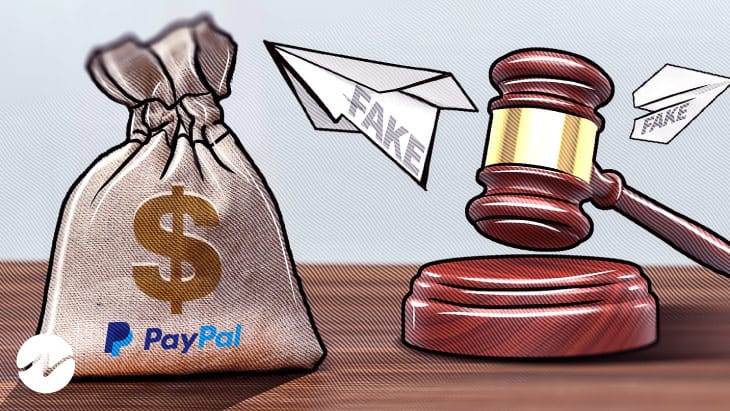- On November 3rd, the new restricted-expression policy will go into effect.
- It has the ability to initiate automatic withdrawals from users.
Rumor on social media platforms is that PayPal has reinstated its $2,500 fine for each time the business determines a user has posted false information. The financial services behemoth included a clause in its terms and conditions that allowed them the right to take $2,500 from customers’ accounts a few weeks earlier.
This applies to “messages, content or materials that, in PayPal’s sole discretion, (a) are harmful, obscene, harassing, or objectionable,” as determined by PayPal. However, since PayPal’s retraction a week ago. Neither the “misinformation” section nor any other adjustments to the policy page have been implemented.
According to Twitter user KellyKga, the contentious part published on October 7 and then withdrawn the following day tried to prohibit users from using PayPal for actions including “the sending, posting, or publication” of information meeting specified criteria.
Content items that were “harmful, obscene, harassing, or objectionable” or “promote misinformation” were among the criteria listed by PayPal. Until recently, the only way to read this section of the Acceptable Use Policy was by digging through ancient internet archives.
Automatic Withdrawal From User
If in case, the clause is added back again. Then PayPal might effectively accuse you of breaking its acceptable usage policy. In relation to the words, you use during the payment process. And the expressive content or goods for which you seek payment via PayPal. It has the ability to initiate automatic withdrawals from users and associated bank accounts.
The payment gateway incorporated the terms and conditions two weeks ago. The business, however, admitted that it had placed the provision incorrectly in the terms. Elon Musk and David Marcus, with Marcus as president and Musk as a co-founder, showed their disappointment with the addition of rules.
Recommended For You:








